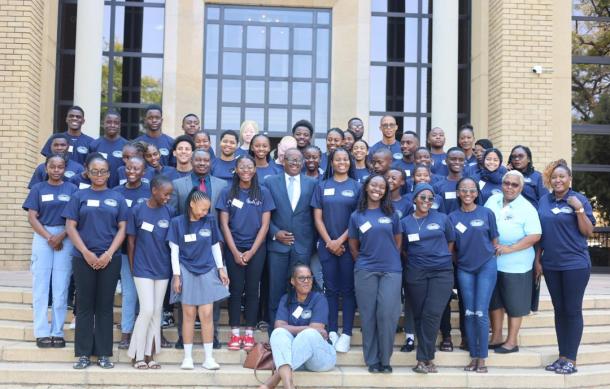
The Junior National Council (JNC) concluded with an insightful session focussing on the future of education and technology in the country.
The Deputy Vice Chancellor of Research, Innovation, and Partnerships at NUST, Dr. Collin Stanley, spoke to the young lawmakers about opportunities in emerging industries such as robotics, artificial intelligence, green energy, agriculture, and the arts.
Dr. Stanley made a point that integrating robotics and AI into Namibia's development plans, such as National Development Plans 5 and 6, is important for enhancing the country's manufacturing sector.
He highlighted the need for a curriculum that aligns with these technological advancements to better equip learners for the future.
"Namibia is well known for mining. We mine diamonds and partake in fisheries, but what will set us apart, especially when these natural resources are depleted? We need to know how; if we master the know-how, we make sure that a lot of Namibians have the skills to know how in the digital world. We will be able to transition to the next economy."
During the session, junior MPs shared their views, discussing both the benefits and challenges of incorporating these technologies into different industrial sectors, particularly the education sector.
They also raised concerns about potential negative impacts on the economy.
The Chairperson of the Junior National Council, Anna Andimba, concluded the session on a positive note.
She praised the discussions as insightful and inspiring, reflecting the dedication of the council members.
Andimba stressed that the council is a beacon of hope for young people everywhere, showing that when given a platform, they can drive meaningful change.
"Our generation has been entrusted with the responsibility to not only inherit but shape the future of this country," she said.





